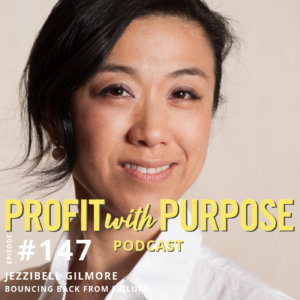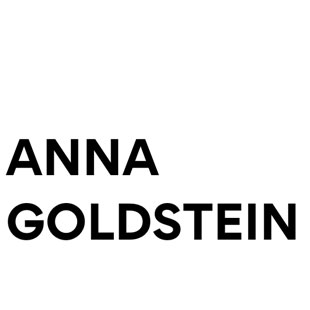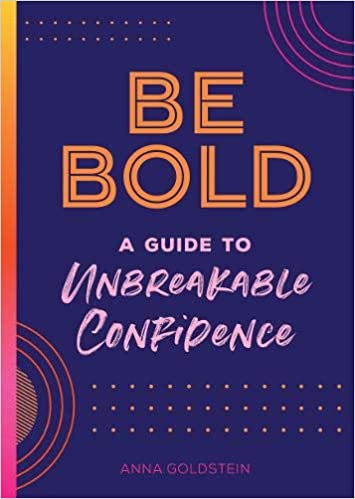Jezzibell Gilmore is SVP Business Development and Co-Founder for PacketFabric. Jezzible’s career path hasn’t been a straight line — starting in her 20’s she had many different jobs and then she put the pieces together and realized that technology start-ups is where her skills, passion, and purpose come together. PacketFabric is building a next-generation networking platform to redefine network connectivity. PacketFabric is the ideal combination of carrier network and software as a service, offering a wide range of connectivity solutions between colocation, cloud, and to business partners. On Tuesday, August 27th, PacketFabric Secured a $75m Joint Venture Funding with Digital Alpha Advisors Supporting Connectivity Advances for Next-Generation Networking Platforms.

Of course. It’s strange that I ended up being an entrepreneur. I studied art in school, so I always thought I’d be an artist. When it came to responsibilities, I realized I had to make a living coming out of school. I’ve done a lot of different things. I started at a law firm as the office manager. You know I learned a lot of different aspect of running an office and working with the law in from there. A client of the firm took me into his technology company and that’s how I got into technology and I’ve worked in executive management. I’ve worked in operations and I’ve worked in engineering. And it all seemed so different from each other. So often when we look at the pieces of our lives, we say oh well that was wasted time. No time is wasted. It’s just a different way of contributing to your end goal.
How many different jobs do you think you’ve had?
I’m obviously a little older. I’m closer to what you’d call a Millennial in my career path. I haven’t stayed at a job more than five years at a time. So, I’d say 10 different jobs maybe you know I’ve been at with six different startups. This is my sixth startup. I think one of the key characters of entrepreneur is your ability to roll up the sleeves and do whatever it takes. Right. And I had to learn accounting because I know somebody has to make sure the books were right. Just last year I took sales and marketing. I was in business development and you know I always thought of that sales wasn’t really my thing and managing a sales team wasn’t my thing. Well, now I’ve been doing and doing it for over a year. I’m not so bad.
That’s good. You know I think we have all these preconceived notions about ourselves and you know I think there’s also just a general notion of do one thing right or you know not so much anymore.
Sometimes people can feel scattered and how do we put these pieces together whether it’s from a resumé perspective or of a passion perspective? And I think it’s in many ways, if you can figure out the story that connects the pieces together that can be a really helpful path because it gives you different insight.
Absolutely. So I you know when I was taking on sales for pack fabric and I thought I should read some more about you know running sales and marketing. I read this book called StoryBrand. And I think it doesn’t just apply to the companies and the services that you sell applies to yourself right. You as an individual have to be able to have the ability to market yourself in all of our experiences. You have to be able to understand who you are and what helps you to be you and take advantage of the strengths of you. And so you got to be able to come up with a story of you know why all of those experiences skill sets it up to make you special. And I think that not only helped me to build the team and the product service offerings that we have but also help me recognize myself as an individual you know what do I have to give and where do I see lacking so I can hire the talent to help with those areas.
I’m currently reading StoryBrand. I’ve had multiple people recommend that book to me recently. I haven’t finished the book, I’m in the middle of it, but I totally agree with the idea of marketing yourself and telling your story from your unique perspective. I had ten jobs in eight years. I’ve been doing this now for 10 plus years but my first several years in the working world was just kind of like oh I like that I don’t like that just kind of figuring it out and I think so much of especially because technology changes things so much as being willing to throw yourself into the fire and figure it out. That’s some of what you’re talking about?
I didn’t think I was good at marketing and sales, but I threw myself in it and I realized I’m pretty good. A lot of being an entrepreneur is not about knowing exactly what you’re going to do. Like I said this is my sixth start-up and every one of them’s different right. And just because when you are starting and you don’t know what it is that you’re going to do to get to the end goal. Also, continue to evolve to grow. The most important thing is to keep focus and figuring out how to get to where you need to get to and understanding your strengths your core competency. What is it that you do best that you think that makes you special? Doing this and let others contribute on the pieces that you’re not good at. No individual is successful by themselves at the company or successful as a team and it’s the people that makes the company. So if you understand what it is that makes you special and if for me I feel that’s the vision. When I see a need, I try to figure out how to fulfill that need. And then when you bring the people together they bring special skills that I don’t have but they also have to want to follow the vision that I have. You have to be determined and you set to the vision so they can contribute to that. You know I don’t think that you’re going to be the end all be all for everyone because none of us are going to be able to. We’re not perfect.
You appeared to me as mentally strong. I mean six startups. That is not easy. Startups are not for the faint of heart. What draws you to startups? Has everyone been successful?
Six is a lot. There’s one that was not successful. I think that we were ahead of ourselves ahead of its time. Right. The technology that we were working on is still out there and it’s great. I still believe in it, but I don’t think that we had the best execution. And also I think we didn’t really understand our core competency. You know we weren’t as strong of a manufacturing arm. None of us had any manufacturing experience. All of us come from networking and software development. Right. So we saw a need in the market which were we saw something that we thought the market would want which is interactive LCD panels. And it turns out that it’s not as reliable. We couldn’t get the manufacturing processes correctly and in time. Right. When you’re building software, you build the software you tested you release it, and you can do it over and over and correct the bugs and it’s quick. Well, when you’re molding plastic and soldering chips it takes time to stop the production line. There’s a 90-day change order process. We weren’t really set up. To do it well because we didn’t really understand the process. But that’s a lesson learned. That’s not an area I should venture into. We definitely lost money in the business.
How did you come back? How did you think “Okay, I’m gonna start again?”
That’s every day. It’s not to just in a single fail. As a child, I think I was pretty challenged by my parents. My family raised me to be a strong woman, very independent, and I was always told if I feel that I need to get up by myself I would. I wasn’t coddled. As a parent it’s a hard thing to do because my 6-year-old, every time he falls and all I want to do is run over and coddle him, but it takes everything to keep me in my seat and say, “get up you’re fine.”From my perspective, every time that he gets up it builds him to be stronger. And the same thing for me. Once you have you’ve fallen down and you’ve gotten up, you have the experience. And nobody’s looking but you.
When I have bouts of failure, it almost pushes me more. Do you find that you’re like I gotta figure this out? It makes you dig deep, right?
You know what I’ve learned from all these start-ups is the difference between success and failure is you giving up. If you haven’t given up you haven’t failed.
But how do you know when to give up? Like this company is failing and I got to throw in the towel. When do you realize that?
If you don’t have the skillset. It comes to was comes to self-awareness. You got to understand what it is that you are good at as an individual. As an entrepreneur, I am flexible. It’s a self-awareness thing of really understanding of, “Oh you know this didn’t work because this wasn’t fully a match but not completely giving up but to pivot. ” But, also sometimes you just have to say you know what that’s not the thing for me. It wasn’t the area that I was meant to be in. A lot of it is tough because like you said , sometimes failure makes you want to fight harder and you’ve got to dig deep and ask, “does it make me a failure to admit that I’m not good at this?” But, I don’t think that’s a failure. I think that’s a success. Recognizing the fact that there’s this is not a thing that I’m good at. There are a lot of things that I’m not good at. And you gotta know that to be a successful individual.
I think as a culture we’re confused about what it means to be successful and what it means to fail. And, I think it’s pretty backwards because you know sometimes we see people who are “successful”…let’s say Kate Spade. She appears to be successful. She’s got the brand, she’s got the money, she’s got the fame , she’s got the house, the husband, the kid and then she cuts her life short. Right. So, is that success? No. It depends on how you define it, right? Or if somebody goes for something and it doesn’t work out is that failure?
I think it’s hard because in our society today the I think most the measurement is financial success. At the end of the day I think most people the elderly as you ask them you know what is the most satisfying nobody ever said, “oh I made so much money.” I’m surrounded by the people that I love in my younger years. I never valued the relationships I built. But as I grow older, and as I continue to build these companies, you’ll realize it’s those relationships that you depend on not just for your business success but for your personal success. The human connections is what I take as the most valuable right. Many of my commercial successes come from my deep connections with people and understanding their challenges and trying to help them solve their problems. And I think that if we all see that we are truly passionate about. And for me, I think it’s more about the human connection than just the money itself. Who doesn’t want to make money? And who doesn’t want to help all of their friends and employees make money and help make help with their customers be successful? But at the end of the day, that’s not the reason why I’m doing what I’m doing. The reason why I’m doing what I’m doing is because I want to help solve a problem that the people I care about are experiencing.
Whenever I focus on the money in my business I quickly get miserable. But if I focus on serving and solving problems I get inspired and I can think more creatively and much happier.
And the money comes with it. If you are solving somebody’s problem, then the money comes with it.
Do you have a spiritual practice?
I love to be more spiritual. I think my spiritual my most spiritual right now is getting more sleep. I think I tried to introspect with everything because it’s not just like you we were talking about the story brand right. I read the book and I was like okay would that make sense for business. But then introspect to me as an individual right. How do I bring that principle applying to me. And the same thing. I just I have a active overactive mind and I’m always trying to think oh well that sounds interesting. How can I apply that principle to something else. You’re always trying to make something work more efficiently and better. And how can I sell help someone else’s solve a problem with help myself solve a problem and not settling for the status quo. Right. And I hate the response from other people where they say well that’s how we’ve always done it. Well just because that’s how you’ve always done it doesn’t mean that’s how you should continue to do it and be innovative.
What’s the best advice you’ve ever been given?
The only thing you can’t make more of is time. So use the time you’re given consciously and effectively. What we see as leaders, managers, and mentors is the most potential in someone is not the most potential you can bring out of someone — the person that you’re working with has to want to grow to achieve that potential. So invest to in your time and your resources to help someone you see as with the most potential but without the drive, is not a wise investment. Invest in the people that want it.

Search
Popular Posts
- 02 Mar 2008The Flowering of Human Consciousness 7 Comments
- 01 May 2014Using Visualization to Create What You Want 7 Comments
- 26 Mar 20133 Questions to Change Your Career 4 Comments
- 14 Mar 2014I walked on Fire! 4 Comments
- 29 May 2014How to Bust Through Your Fear 4 Comments

